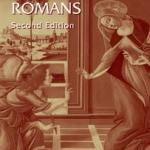In partnership with Nijay Gupta, I have finished writing a commentary on Philippians for the NCBC series (ed. BW3). Coming Soon!!!
Here are the basics of what I’ve learned and what surprised me:
I’m pretty certain it was written in Ephesus not Rome.
I can’t get into the compilation theory, I think there are much better ways of explaining the abrupt transitions at 3:1 and 4:10 without resorting to multiple letters stitched together. There are just so many recurring themes across Philippians 1-3 in particular that make a compilation unlikely for my mind.
I only see two groups of opponents in the letter, pagan opponents and Jewish Christ-believing adversaries, no Gnostics, Cynics, or libertines.
While some debate whether Philippians is a letter of friendship or a family letter, I’d call it a fellowship letter. The language koinōnia is ubiquitous and has connotations of financial aid, much like ancient associations, but as it relates to Paul’s apostolic ministry.
Philippians is an evangelical letter, references to gospel are infused through the letter, Paul talks about confirming the gospel, advancing the gospel, the defense of the gospel, the cause of the gospel, living lives worthy of gospel.
On “bishops/overseers” see Alexander C. Stewart, The Original Bishops, for bishops are not synonyms for elders.
The Christ hymn is about the pre-existent Jesus not an Adam Christology. It is mostly ethical in aim, but has kergymatic connotations. It is programmatic for the letter in Phil 3:7-11 and 20-21.
Reading Phil 2:12-13, I’m persuaded by John Barclay that Paul’s soteriology is not monergistic nor synergistic, but energeistic!
I’d side with Peter T. O’Brien (“Was Paul Converted?”) who rightly notes that it is not just Jewish privileges, but also personal achievement in those privileges that is renounced by Paul. This points somewhat away from E.P. Sanders’ view that “my righteousness” means nothing performative but “the peculiar result of being an observant Jew which is in and of itself a good thing” (Paul, the Law, and the Jewish People).
Philippians 3:9, the only place in the Pauline corpus where I hesitantly support the subjective genitive faithfulness of Christ.
Skybala does not mean “crap,” it just means left-overs or refuse, no vulgarity here (see Jeremy C. Hultin).
The theme of imitation should not be underestimated, Paul sets himself up as an example, over and against Jewish Christ-believers as one who has renounced his inherited privileges and personal achievements in order to gain Christ. In other words, Paul lives out 2.5-11 and expects the Philippians to do the same.
Phil 3:20-21 is a great precis of Pauline eschatology.
The politically subversive element of what Paul is saying need not be overplayed, as if every affirmation of Jesus is an automatic denunciation of Caesar. Nonetheless, Jesus is at least an alternative Savior to Caesar and something of a definitive rival to Caesar in the final eschatological saga that will unfold at the end history.
Best exegetical commentaries:
Bockmuehl (BNTC) – by far!
Fee (NICNT) – close second!
Keown (LEC) – a surprising gem!
Hansen (PNTC) – reliable and useful!
Silva (BECNT) – sensible and good on Greek!
Best Greek resource:
Hellerman (EGGNT)
Best pastoral commentaries:
Cohick (SGBC)
Thielman (NIVAC)
Wright (NTFE)
Monographs to Read:
Joseph H. Hellerman, Reconstructing Honor in Roman Philippi: Carmen Christi as Cursus Podorum (SNTS 132; Cambridge: CUP, 2008).
Peter Oakes, Philippians: From People to Letter (SNTSMS 110; Cambridge: CUP, 2001).
M. Sydney Park, Submission within the Godhead and the Church in the Epistle to the Philippians (London: T&T clark, 2007).
Julien M. Ogereau, Paul’s Koinonia with the Philippians (WUNT 377; Tübingen: Mohr/Siebeck, 2014).
P. Pilhofer, Philippi: Die erste christliche Gemeinde Europas (WUNT 87; Tübingen: Mohr/Siebeck, 1995).
Veronica Koperski, The Knowledge of Christ Jesus My Lord: The High Christology of Philippians 3:7-11 (Kampen: Kok Pharos, 1996).












